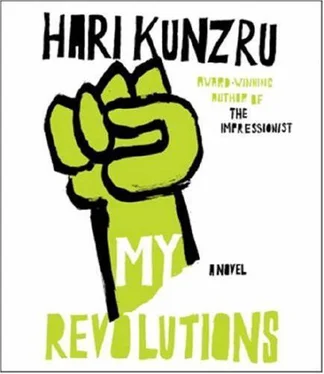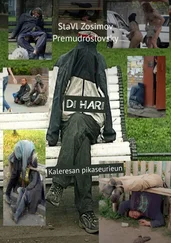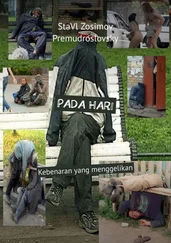Maggie was the magnet that drew people to the house. Though Colin’s writing was the official center of things, it was her determination and her adventurousness, not the way he’d sometimes talk excitedly of “having a breakthrough” or sit around dejectedly when not having one, that gave the place its charged, purposeful atmosphere. She seemed inexhaustible, working as a teacher to support Colin’s literary ambitions and coming home every day to an establishment that at times seemed part boarding house and part fallout shelter. There would often be someone sleeping on the sofa, and one or two others on mats on the floor. Usually they were other activists, men with rucksacks and pipes, pairs of tanned young women just returned from camps and congresses in exotic-sounding places.
Maggie’s frank bossiness, her sudden inspirations, her willingness to put her shoulder to the wheel whenever there was something to be done infused the CND group with a sense of direction it would otherwise entirely have lacked. She listened patiently to my half-formed opinions, and took me canvassing with her on the Saturdays when Colin was “trying to get something done” and needed peace and quiet. We’d get a lift from Squadron Leader Myers, who had a car, and set up the table in our regular spot outside the station. We’d eat a packed lunch, and if I was lucky she would chat about herself. She told me she dreamed about “doing something really useful” with her teaching. Volunteering, going abroad. I began to understand, dimly, that she wasn’t happy; the thought both shocked and thrilled me.
At first I tried to keep Colin and Maggie a secret from my family. One Sunday Brian, always looking to stir up trouble, told Dad I was “hanging around with some beatniks” and there was a terrible row. My father threatened all the customary things. I stormed upstairs, leaving him shouting in the living room while my mum mumbled and wrung her hands. Slamming my bedroom door, I found Brian standing on my desk, holding the old suitcase in which I kept all my CND stuff, the cuttings and souvenirs and supplies of leaflets for canvassing. He’d dragged it from its hiding place under my bed and emptied the contents out of the window. Pieces of paper were turning end over end all down Avon Close, caught in hedges, silting up the gutters in little piles.
My professed nonviolence didn’t hold me up for a second. By that time I was as tall as Brian, though more lightly built, and he had an older brother’s complacency. My attack took him by surprise, and I soon had him wedged in the corner by the bedside table, his lip bleeding, covering his face to ward off my flailing fists. My dad pulled me away, pinning my arms to my sides until I stopped struggling.
The incident was judged to be my fault. Mum took to her bed and Dad forbade me to see Colin and Maggie again. My CND membership card, which I’d retrieved from the garden, was torn
up in front of my eyes. Shaken and furtive, Brian avoided any obvious triumphalism. I caught him smiling slyly to himself when he thought no one could see. That day was the end of something in our family. I couldn’t give it a name, but after that it had gone.
* * *
Leaving Dieppe, I’m exhorted by signs to remember to drive on the right-hand side of the road. I crawl along in a train of British cars, past industrial estates and big-box hypermarkets advertising cheap deals on alcohol. Gradually the country opens up into farmland, interspersed with gloomy towns overseen by brick church towers and war memorials.
I support Kenny’s cause with Sam for the simplest of reasons— he reminds me of myself. He’s a painfully serious boy, just as I was in my teens. One afternoon, about six months ago, he was mooching about the house after my stepdaughter, vainly trying to interest her in a vinyl record he was carrying. “Listen to the lyrics,” I overheard him say. “And the guitar on track three.” She was sending a text message on her phone. It was like watching a depressive footman hovering behind the queen.
Later that day, I tried to talk to Sam, to tell her that if she didn’t like him, she ought to put him out of his misery. “You’re being cruel,” I said.
“He’s here of his own free will,” she replied primly. “Anyway, what do you know about relationships? You’ve only ever been with Mum.”
She said it with such certainty. Suddenly I could see very clearly the unbroken borders of her world, the world of a child. She’d always treated me as a kind of country bumpkin when it came to feminine topics; amused, I’d accepted it as part of my fatherly identity. But her lack of imagination now struck me as odd, limited.
“Why do you think that?”
It was stupid of me. She looked up sharply. “You’ve never talked about anyone else. And you were a monk before, so I just
thought. .” She trailed o, I was in too deep, and retreated to wash up. She followed me into the kitchen. “You and Mum.”
“Yes?”
“You’re all right, aren’t you?”
I hugged her. “Of course we are.”
So I never solved the problem of Kenny, and he’s still hanging around, yearning for Sam just as hopelessly as I yearned for Maggie. After my fight with Brian and the ban on seeing her, I stayed away for three days, then went round to see her on my way home from school. As usual Colin was typing, Maggie sitting opposite him marking books. In melodramatic terms, I described what had happened, hoping they’d be able to help. Maggie gave my shoulder a squeeze and told me it was good to stand up for what I believed in, but I shouldn’t have lashed out at my brother. Dr. King had withstood much greater provocation. Colin frowned and asked whether my dad knew their address. They fed me bean soup and sent me home, Maggie’s good-bye kiss burning on my cheek.
After a few months things were much as they’d been before. I’d avoid confrontations, lying about after-school activities, even inventing a fictitious youth club at which I played ping-pong once a week. If I ate at Maggie and Colin’s I’d force myself to swallow another dinner at home. Dad knew I was still seeing the beatniks, but had more pressing things to worry about. Brian had abruptly left school and started work in the sales department of an engineering company. He was spending most of his salary in the pub and came home drunk several nights a week, tripping over the furniture and leaving marks on the wall as he staggered upstairs. His confrontations with Dad were much worse than my own, and he had no patience with my mother, jeering at her as a mad cow, a mental case. In response, Mum grew ever more anxious. Soon after my seventeenth birthday she was committed.
I’m ashamed to say I only went to visit her once in the three months she was in St. Bernard’s. It was a large Victorian institution, a cluster of imposing Gothic buildings surrounded by a high perimeter wall. Inside, orderlies pushed trolleys and escorted patients
down long, echoing corridors. She was on a ward named after some royal personage, which smelled of urine and boiled cabbage. The beds were like little iron islands on the scuffed linoleum.
Brian had refused to come, saying he had better things to do with his weekend than go to a nuthouse. A nurse took Dad and me past a row of women sitting in vinyl-covered armchairs or lying in their beds. Mum had been given a course of ECT. She seemed not to know who we were. Trussed up in an unfamiliar flannel dressing gown she smiled uncertainly as my father tried to summon some gentleness into his voice. “How are you bearing up, Angela?”
She pointed out of the window. “You can see the birds,” she said.
Dad nodded encouragingly, then looked at his feet, unsure how to go on. There was a terrible silence. My eyes kept straying back to Mum’s hair, which was messy, tangled up in knots at the back of her head. This was what I found most upsetting. She was particular about her hair. She’d spend hours at her dressing table, pinning it up, freezing it into gâteaulike shapes with cans of lacquer.
Читать дальше












